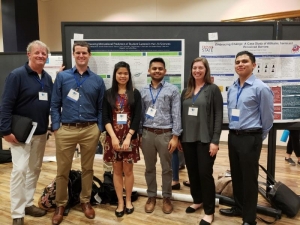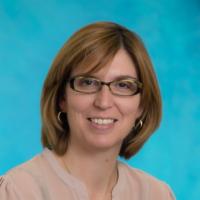The Impact of a Pedagogy Course on the Teaching Beliefs of Inexperienced Graduate Teaching Assistants
There has been little attention given to teaching beliefs of graduate teaching assistants (GTAs), even though they represent the primary teaching workforce for undergraduate students in discussion and laboratory sections at many research universities. Secondary school education studies have shown that teaching beliefs are malleable and can be shaped by professional development, particularly for inexperienced teachers. This study characterized inexperienced GTAs’ teaching beliefs about student learning and how they change with a science-specific pedagogy course that emphasized student learning.

 The Society for the Advancement of Biology Education Research (SABERI, holds an annual west coast regional conference for education researcher in biology. UCLA was well represented at this year’s conference at UC Irvine, January 19th – 20th, with presentations by:
The Society for the Advancement of Biology Education Research (SABERI, holds an annual west coast regional conference for education researcher in biology. UCLA was well represented at this year’s conference at UC Irvine, January 19th – 20th, with presentations by: Professor Beth Lazazzera, Associate Professor of Microbiology, Immunology and Molecular Genetics (MIMG), has accepted the position of Chair for the Life Sciences Core. Beth has extensive experience in curriculum development, teaching pedagogy, and administration that will provide an excellent foundation for the position. Her position is effective July 1, 2019, and she will be vice chair of the LS Core working with the current chair, Professor Frank Laski, effective April 1, to help with the transition. The LS Core recognizes Professor Frank Laski’s ten years of dedicated and exemplary leadership as chair of the LS Core, leading to significant pedagogical and administrative advancements in the LS Core program.
Professor Beth Lazazzera, Associate Professor of Microbiology, Immunology and Molecular Genetics (MIMG), has accepted the position of Chair for the Life Sciences Core. Beth has extensive experience in curriculum development, teaching pedagogy, and administration that will provide an excellent foundation for the position. Her position is effective July 1, 2019, and she will be vice chair of the LS Core working with the current chair, Professor Frank Laski, effective April 1, to help with the transition. The LS Core recognizes Professor Frank Laski’s ten years of dedicated and exemplary leadership as chair of the LS Core, leading to significant pedagogical and administrative advancements in the LS Core program.